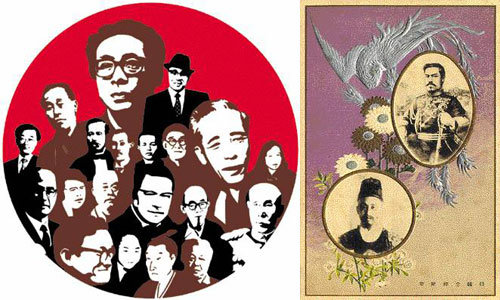The Japanese

What is Japan to us Koreans? Japanese Prime Minister Koizumi Junichiros visit to the Yasukuni Shrine of August 15 only added more weight to the significance of such a question. Currently, Japan itself is entangled in turmoil regarding the visits to the Yasukuni Shrine, to a point that national opinion is dividing into two. Rightists obviously are the ones favoring visits to Yasukuni, but who are those inside Japan that oppose the visits to Yasukuni, and why do they hold such a position? That is where we need to look inside Japan more deeply and more meticulously.
This book vividly describes how Japanese before and after colonial rule viewed Korea, and what their relationship with Korea was. The author shines light to unseen historical corners of Korean and Japanese relations by looking at how 72 Japanese, ranging from politicians, philosophers, scholars, and cultural and religious figures, viewed Korea. Some of them ruthlessly ruled Korea such as former colonial governor-generals, some collectors plundered Korean cultural artifacts, some art historians indulged in Joseon-era white porcelains, and some lawyers actually stood up for the colonial masses. Such diverse characters are all included in the book. In this respect, this book provides plentiful and diverse faces of the history of Korean and Japanese relations.
The first person the author writes about is Saigo Takamori, who argued that Japan needed to conquer Korea, but was later driven out of power. The following person is Yoshia Shoin, who claimed that conquering Korea was the divine way. Fukuzawa Yukichi, praised in Japan as the forefather of modern philosophy but also viewed as providing ideology that disdains Asia, and Ito Hirobumi, infamous as the superintendent commander of Korea, follow in this book. The reason they adorn the first pages is to find the roots of Japans misconceived views on Korea by looking at those responsible for Koreas colonial past.
During the colonial era, many Japanese also came to Korea seeking their fortunes. Okura Takenotske collected every Korean cultural artifact that he could put his hands on and created the Okura Collection. Although there were only a few, some Japanese felt sympathy and pity for Korea, adhered to the rules of human dignity, and therefore overcame national boundaries. Yamazaki Kesaya and Fuse Tatuji were human rights lawyers that devoted their lives for the rights of the colonial masses. Tauchi Chizko, who spent her entire life assisting Korean orphans, and Matsui Yoshiko, who put forth all her efforts to protect the rights of Korean victims of the atomic bomb, carried out universal humanism that transcended nations.
The author Tateno Akira simultaneously shows Japanese ambivalences: both villains who exploited Korea and good people who opposed cruel colonial rule. The author expresses satisfaction in providing the opportunity to observe the lives of many human beings that under historic limitations did not even recognize their own limits. Obviously, in Koreans minds, one cannot look at the actions of past Japanese benevolently. However, in the current atmosphere of growing anti-Japanese sentiment, isnt it more vital to look at Japanese people through diverse spectrums, just as this book does, in order to truly know them?
Lee Won-deok, Professor of Japanese Studies at Kookmin University







